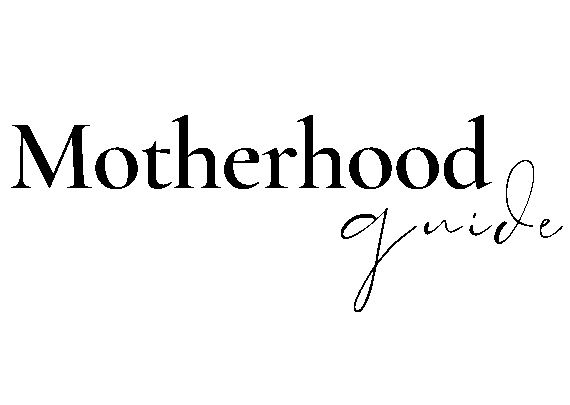Meeting your adult child’s significant other for lunch can be a big event, one that sets the tone for your future relationship with them. Modern etiquette focuses on making everyone feel comfortable, respecting boundaries, and taking care of a welcoming atmosphere during the lunch or dinner. Here’s a detailed guide on how to handle the conversation, who should pay, what to do if things get awkward, and other important details:
1. Should You Bring a Gift for Your Child’s Life Partner When Meeting Them For The First Time?
Bringing a gift isn’t necessary for a lunch meeting but can be a nice gesture, especially if it’s something small and thoughtful:
- If you feel like it: A small token like a bottle of wine or a box of chocolates can be a nice touch, but it’s not obligatory.
- Avoid making it too personal: Choose something neutral that isn’t too lavish or personal, like a flower arrangement, a local treat, or something related to the meal or location.
2. What to Speak About When Meeting Your Adult Child’s Significant Other For The First Time
When meeting your child’s life partner for lunch, the goal is to engage in light, positive conversation that allows everyone to relax and get to know each other. Keep the tone casual and friendly, with a balance between showing interest and allowing space for natural exchanges.
- Beginning of the lunch: Start with casual greetings and small talk. You can comment on the setting or ask about how their day is going.
- “I’m so glad we could meet today! How has your week been?”
- “Have you tried this restaurant before?”
- Middle of the lunch: As the conversation progresses, ask open-ended questions about interests, hobbies, and their background. Let them talk about themselves and their experiences.
- “What do you like to do when you’re not working?”
- “How did you two meet?” (This question is often well-received as it’s a lighthearted and neutral topic.)
- “Do you have any upcoming trips or fun plans?”
- End of the lunch: Wrap up the conversation with future plans and show appreciation.
- “It’s been really lovely getting to know you. I hope we can do this again soon.”
- “Are you two doing anything exciting for the weekend?”
3. How Not to Sound Interrogative
The key to avoiding an interrogation is to focus on natural conversation rather than focusing on a series of questions that might make your guest feel uncomfortable. Here are some tips:
- Avoid rapid-fire questions: Give them time to answer before asking another. Keep it balanced. Don’t interrupt.
- Don’t press for personal details: If the partner seems hesitant to discuss certain topics, don’t push. Let them open up on their own terms.
- Share your own experiences: This allows the conversation to feel more reciprocal rather than one-sided.
4. Complimenting the Partner:
Compliments are a great way to break the ice and make the partner feel appreciated. However, the type of compliment and who gives it is important.
Who should compliment?
- Parents can both compliment, but it’s important to keep it appropriate and not overly personal. Father to son’s girlfriend: A nice, general compliment like, “You have a wonderful smile, it’s clear [child’s name] is lucky to have you,” can be kind. Mother to daughter’s boyfriend: A compliment like, “You seem really thoughtful. I can tell you care about [child’s name].” This is positive and shows interest in their relationship.
5. How Much to Speak About Your Child and Their Past
It’s natural to speak about your child, but avoid making them the center of every conversation or overly discussing them in a way that might feel intrusive to their partner. Here’s how to navigate it:
- Share light anecdotes: Mention something positive and neutral about your child, but keep the tone balanced.
- Don’t overshare: Avoid going into personal or sensitive details about your child’s past or their relationship with you. Let the focus be on the present moment and their relationship.
6. What Topics to Avoid
Some topics can make the conversation uncomfortable or create tension:
- Politics and religion: These are sensitive topics and can often lead to disagreement.
- Personal or family drama: Avoid discussing your child’s past or any conflicts in your family, especially in front of the partner.
- Financial matters: Avoid asking about income, spending habits, or financial plans unless they bring it up.
- Marriage or future plans: While it’s natural to wonder about future plans, don’t pressure them about whether they are planning to get married or start a family.
7. What to Do If the Conversation Gets Uncomfortable
Sometimes, the conversation can take a turn, and it might get awkward. Here’s how to handle it:
- Don’t dwell on it: If you notice an uncomfortable silence or a shift in tone, try to redirect the conversation with a neutral or lighter topic.
- Stay calm and composed: If your child’s partner seems uncomfortable, offer them a gentle out or a change of subject.
- “Let’s talk about something more fun, like any good movies or shows you’ve seen recently!”
- Be empathetic: Recognise that this is likely a first meeting, and everyone is getting to know each other. Give people space to relax.
8. How To End A Meeting on a Positive Note
If you’re unsure about when to finish, it’s completely acceptable to subtly ask your child or their partner how they’re feeling about the timing. You can ask, “Is it okay if we start wrapping up soon? I know [child’s name] has to get going.”
Summarise the lunch: As the conversation begins to slow, offer a positive summary of the meal. This could be something like, “It’s been so great to catch up with you, and I hope we can do this again soon.” Thank everyone for coming and make sure to express that you enjoyed their company. For example, “I really enjoyed our time together today. Thank you both for coming!”
When it’s time to end the lunch, always be polite, gracious, and avoid rushing anyone. If you follow these cues, your guests will feel comfortable, and the lunch will conclude naturally on a positive note, without feeling awkward or abrupt.
9. Who Should Pay?
Who pays depends on your relationship dynamics, but traditionally, if you invited them, it’s polite to offer to cover the bill. However, it’s not expected for parents to always pay when adult children and their partners are involved. Here’s a guide:
- You offer to pay: As a host, it’s traditional for you to pay, especially if you initiated the lunch.
- If they offer to split: You should accept if they insist to share the cost. It can be their pride or cultural background that should not be ignored. Let them contribute if they offer, but be polite and humble in accepting.
- Don’t make it a big deal: If the partner offers to pay, accept with a thank you and avoid making it uncomfortable.
The key to a successful with meeting your adult child’s significant other is respect, boundaries and genuine, positive interest. Make the conversation comfortable, avoid putting pressure on them, and create a space where everyone feels relaxed. By following these guidelines on what to speak about, how to ask questions, and what topics to avoid, you can make this occasion an enjoyable one for all involved.












